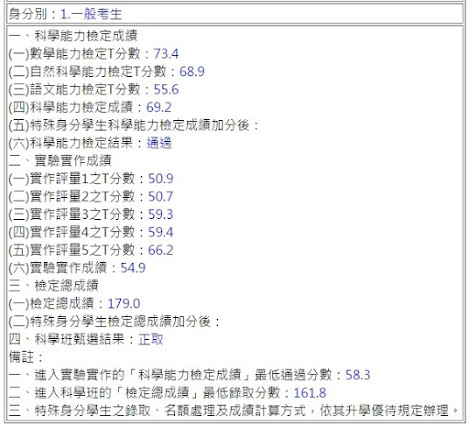TIOJ 1975:即時工作排程系統(Scheduler)
TIOJ 1975:即時工作排程系統(Scheduler)
題目大意:有 $n$ 個即時工作和 $m$ 個非即時工作,即時工作以 $(l,r)$ 表示,代表這個工作在 $[l, r]$ 要被處理,非即時工作以 $(w, d)$ 表示,代表要在時間點 $d$ 以前處理了長度為 $w$ 的時間,且同時最多只能有一臺機器處理此工作。每臺機器同時最多只能處理一個工作,問你最少需要幾臺機器才能把全部工作做好。
解法:首先即時的工作可以用差分維護每個時間點有幾臺機器在運作,把非即時的工作按照 $d$ 排好,用一個 $\text{treap}$ 記錄目前的時間點裡有 $i$ 臺機器在運作的有幾個,如果要工作 $w$ 的時間,就相當於把最小的 $w$ 個 $i$ 變成 $i+1$,這個 $\text{treap}$ 除了要可以以大小 $\text{split}$ 之外,也要支援以總和 $\text{split}$ 的功能。
$\text{Code:}$
#pragma GCC optimize("O3")
#pragma GCC target("popcnt")
#include <bits/stdc++.h>
using namespace std;
#ifdef WAIMAI
#define debug(HEHE...) cout<<"["<<#HEHE<<"] = ",dout(HEHE)
void dout(){cerr<<endl;}
template<typename T,typename...U>
void dout(T t,U...u){cerr<<t<<(sizeof...(u)?", ":""),dout(u...);}
#else
#define debug(...) 7122
#endif
#define ll long long
#define Waimai ios::sync_with_stdio(false),cin.tie(0)
#define FOR(x,a,b) for(int x=a,I=b;x<=I;x++)
#define pb emplace_back
#define F first
#define S second
#define rnd(l,r) uniform_int_distribution<int>(l,r)(seed)
mt19937 seed (time (NULL));
#define siz(t) (t?t->siz:0)
#define cnt(t) (t?t->cnt:0)
#define sum(t) (t?t->sum:0)
struct T {
int prior = rnd (0, 2e9);
int siz = 1, cnt = 0, sum = 0;
T *ls = NULL, *rs = NULL;
void Pull() {
siz = 1 + siz (ls) + siz (rs);
sum = cnt + sum (ls) + sum (rs);
}
};
T *Merge (T *a, T *b) {
if (!a || !b) return a ? a : b;
if (a->prior <= b->prior) {
a->rs = Merge (a->rs, b);
a->Pull();
return a;
} else {
b->ls = Merge (a, b->ls);
b->Pull();
return b;
}
}
void Split (T *t, T *&a, T *&b, int k) {
if (!t) {
a = b = NULL;
return;
}
if (k <= siz (t->ls)) {
b = t;
Split (t->ls, a, b->ls, k);
b->Pull();
} else {
a = t;
Split (t->rs, a->rs, b, k - siz (t->ls) - 1);
a->Pull();
}
}
void Split2 (T *t, T *&a, T *&b, int k) {
if (!t) {
a = b = NULL;
return;
}
if (k <= sum (t->ls)) {
b = t;
Split2 (t->ls, a, b->ls, k);
b->Pull();
} else if (k <= sum (t->ls) + t->cnt) {
a = t->ls;
b = t, b->ls = NULL;
b->Pull();
} else {
a = t;
Split2 (t->rs, a->rs, b, k - sum (t->ls) - t->cnt);
a->Pull();
}
}
const int SIZE = 1e5 + 5;
const int MAX = 1e6 + 5;
int n, mx;
int cnt[MAX];
pair<int, int> a[SIZE];
T *t = new T();
void Add (int p, int x) {
if (!x) return;
while (siz (t) - 1 < p) t = Merge (t, new T());
T *t1, *t2;
Split (t, t1, t, p);
Split (t, t, t2, 1);
t->cnt += x;
t->sum += x;
t = Merge (t1, Merge (t, t2));
}
void Move (int x) {
if (!x) return;
T *t1, *t2;
Split2 (t, t1, t, x);
Split (t, t, t2, 1);
int p = siz (t1), c = cnt (t);
x -= sum (t1);
t = Merge (new T(), Merge (t1, t2));
Add (p, c - x);
Add (p + 1, x);
}
void solve() {
cin >> n;
FOR (i, 1, n) {
int l, r;
cin >> l >> r;
cnt[l]++;
cnt[r + 1]--;
mx = max (mx, r);
}
cin >> n;
FOR (i, 1, n) {
cin >> a[i].S >> a[i].F;
mx = max (mx, a[i].F);
}
a[++n] = {mx + 1, 0};
sort (a + 1, a + n + 1);
int pos = 1, sum = 0;
FOR (i, 1, n) {
auto [d, w] = a[i];
while (pos <= d) {
sum += cnt[pos];
Add (sum, 1);
pos++;
}
Move (w);
}
cout << siz (t) - 1 << '\n';
}
int main() {
Waimai;
solve();
}我的分享就到這裡結束了,如果喜歡我的 $\text{Blog}$,歡迎追蹤!

留言
張貼留言